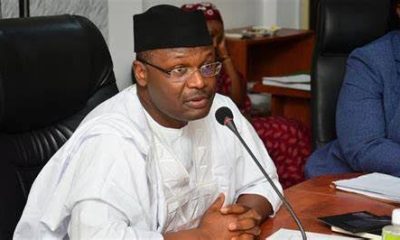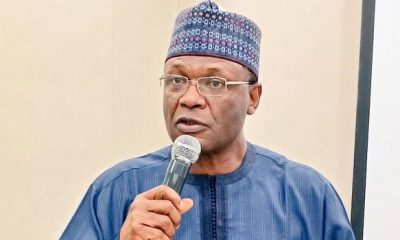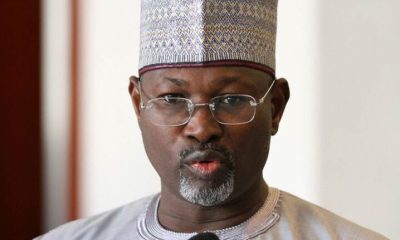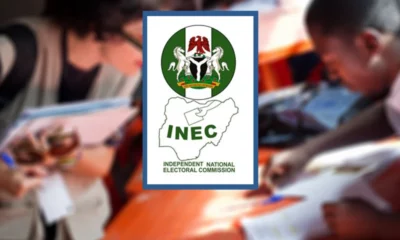News
2023: It Is Unfair To Judge Us Based On Glitch In The Results Upload – INEC
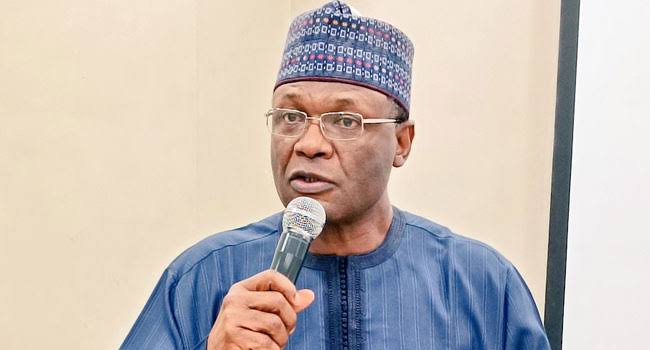
The Independent National Electoral Commission (INEC), on Tuesday, said the glitch experienced in the upload of the February 25 presidential election in the country should not write off the entire polls held nationwide.
INEC National Commissioner, Festus Okoye stated this in response to the final report on the 2023 general elections submitted by the European Union Election Observation Mission on Monday.
He urged Nigerians not to judge the electoral empire as a result of the challenge the commission experienced in the upload of the presidential election.
“It is not fair to judge the entire performance of the commission on the basis of a glitch in the result upload for the presidential election,” he said.
According to Okoye, the law has empowered political parties to know what goes on at the polling units.
“Almost all the political parties nominated and got accredited at least over 170,000 polling agents. What that means is that they had primary evidence of the results from the polling units.
“It is those results from the polling units, together with the BVAS as a machine itself that goes to the collation centre. So, it is not true for a political party to rely only on result upload in order to get the evidence with which it wants to prosecute its case in court,” he added.
The Chairman of INEC’s Information and Voter Education Committee explained that Nigerians commended the electoral body for the deployment of the Bimodal Voter Accreditation System (BVAS) in the general elections.
In terms of voter accreditation, Okoye maintained that nobody has faulted the functionality of the BVAS.
The BVAS machine is an electronic device distributed across the over 176,000 polling units in the country by INEC for the accreditation of voters during the 2023 general elections.
The device was also designed to promptly upload photographic copies of result sheets to the INEC Results Viewing (IReV) portal after result documentation at the polling units.
Headline
Prince Harry visits sick Nigerian soldiers in Kaduna

Prince Harry and his team visited the 44 Nigerian Army Reference Hospital in Kaduna to interact with wounded soldiers who are receiving treatment.
The Duke of Sussex is in Nigeria with his wife to champion the Invictus Games, which Harry founded to aid the rehabilitation of wounded and sick servicemembers and veterans.
Nigeria joined the Invictus Community of Nations in 2022 becoming the first African country to join.
Prince Harry’s visit to Kaduna came 68 years after his late grandmother Queen Elizabeth II visited the state during the time of the late Premier of Northern Region Sir Ahmadu Bello.




News
Senate approves death penalty for drug traffickers
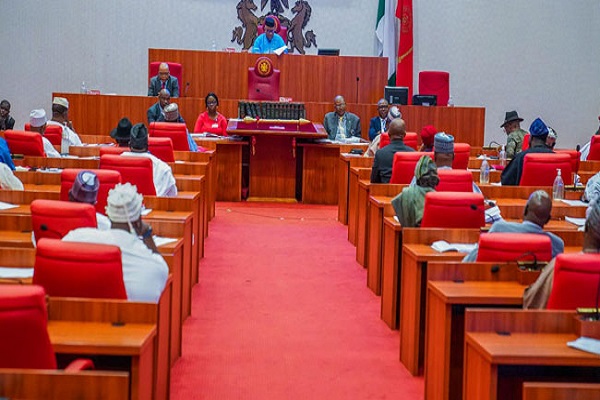
Senate on Thursday, May 9, approved the death penalty for those convicted on the charge of drug trafficking in the country.
The punishment prescribed in the extant NDLEA Act is a maximum sentence of life imprisonment.
The resolution of the Senate followed its consideration of a report of the Committees on Judiciary, Human Rights and Legal Matters and Drugs and Narcotics, National Drug Law Enforcement Agency (NDLEA) Act (Amendment) Bill, 2024.
The Chairman of the Committee on Judiciary, Human Rights & Legal Matters presented the report during plenary, Senator Mohammed Monguno (APC-Borno North).
The bill, which passed its third reading, aims to update the list of dangerous drugs, strengthen the operations of the NDLEA, review penalties, and empower the establishment of laboratories.
Section 11 of the current act prescribes that “any person who, without lawful authority; imports, manufactures, produces, processes, plants or grows the drugs popularly known as cocaine, LSD, heroin or any other similar drugs shall be guilty of an offence and liable on conviction to be sentenced to imprisonment for life” was amended to reflect a stiffer penalty of death.
Although the report did not recommend a death penalty for the offence, during consideration, Senator Ali Ndume moved that the life sentence should be upgraded to the death penalty.
During a clause-by-clause consideration of the Bill, Deputy Senate President Barau Jibrin, who presided over the session, put the amendment on the death penalty to a voice vote and ruled that the “ayes” had it.
But Senator Adams Oshiomhole objected to the ruling, saying that the “nays” had it.
He argued that matters of life and death should not be treated hurriedly, but Barau said it was too late, as he failed to call for division immediately after his ruling.
The bill was subsequently read for the third time and passed by the Senate.
-

 Headline5 days ago
Headline5 days agoSuspend cybersecurity levy– Reps to CBN
-

 Business5 days ago
Business5 days agoNigeria needs over $2bn to revive Ajaokuta Steel Plant, says Minister
-

 Headline3 days ago
Headline3 days agoPrince Harry visits sick Nigerian soldiers in Kaduna
-

 Entertainment3 days ago
Entertainment3 days agoAMVCA Cultural Day: BBNaija’s Neo, Venita win Best Dressed Male, Female
-

 Metro3 days ago
Metro3 days agoEx-Sports Minister laments after hospital neglected him for hours over N80000 deposit
-

 Headline5 days ago
Headline5 days agoTinubu resumes work after foreign trip
-

 News5 days ago
News5 days agoShan George’s money returned to Zenith Bank account



